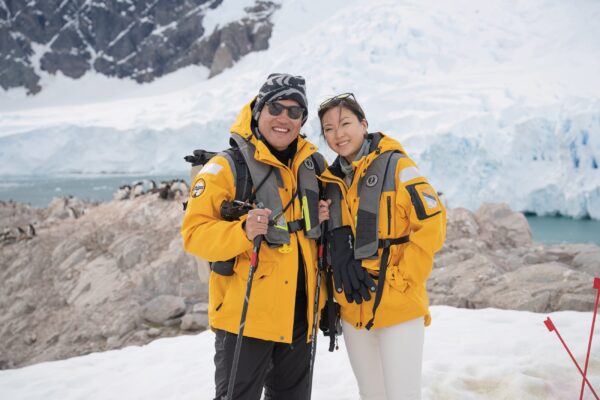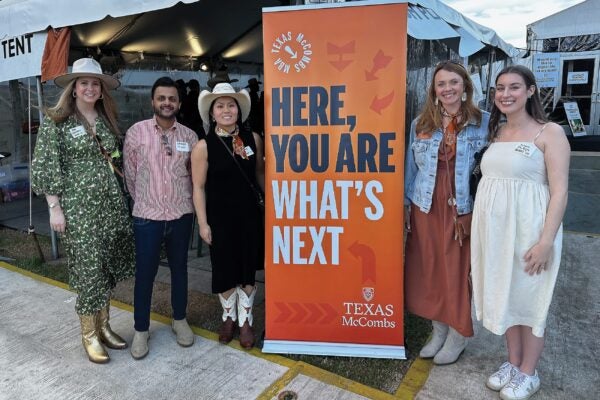Empowering the Next Generation
From virtual programs to on-campus initiatives, these alumni, faculty, and students make a difference through mentorship.
Aarushi Khandelwal, BBA ’22
Business Analyst, McKinsey & Company, Dallas
Years as a Mentor: 5
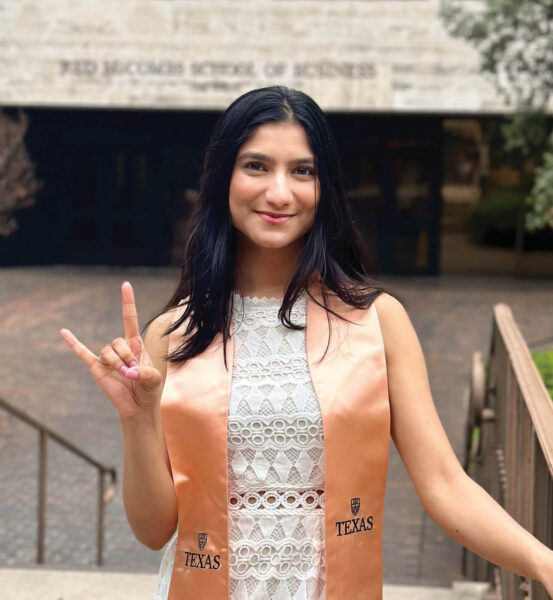
As students everywhere switched to online learning during the height of the pandemic in 2020, many of them struggled academically. Aarushi Khandelwal, then a sophomore at McCombs, saw an opportunity. She created a virtual mentorship program for high school students living in underprivileged areas.
Mentoring for All, the nationwide mentoring program Khandelwal created, matches students with mentors who connect them with resources ranging from career advice to financial aid information. The program is part of Robotics for All, a nationwide student-run nonprofit Khandelwal has been involved with for about two years. It provides coding and programs in science, technology, engineering, and math (STEM) for elementary and middle school students.
“A lot of schools, especially in underprivileged areas, are lacking those STEM resources,” Khandelwal says, “to create a good foundation for college.”
The mentors who participate in Mentoring for All, most of whom are college students, meet with their mentees virtually as they help them “recognize their strengths,” build their confidence, and identify the best career path, Khandelwal says. One aspect of college preparation on which they focus is helping mentees pursue extracurricular activities that will help them stand out on college applications.
“We work with a lot of schools in different areas of the U.S., and not all of them have a really big focus on going to college — choosing your courses and following your interests throughout high school in order to be able to create a good foundation for college,” she says.
In addition to her work with Robotics for All and Mentoring for All, Khandelwal spent the past two year as a teaching assistant for an introductory statistics class, where she frequently coached younger students.
Asked what inspired her to devote so much time to mentoring, Khandelwal recounted one of her first experiences as a mentor, when she was in high school and tutored an elementary school student in math.
“We just really formed a good connection,” Khandelwal remembers. “She thought of me as a friend.”
— Alice Popovici
Anthony Romero, BBA ’24
Current McCombs Student
Years as a Mentor: 2
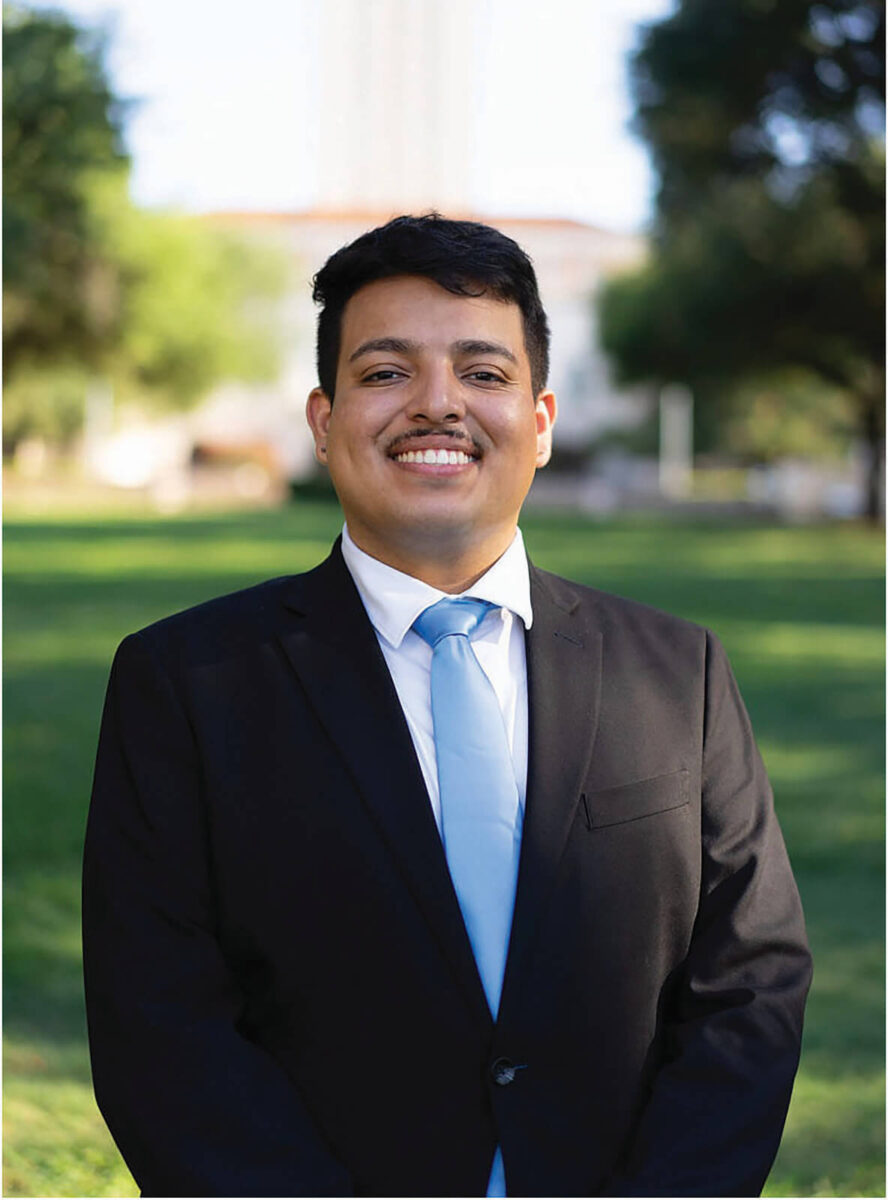
When Anthony Romero started mentoring with McCombs Success Scholars in 2021, he helped four mentees in their freshman year navigate the transition from virtual learning during their last year of high school to attending college in person. The accounting major was well prepared for the task after weathering pandemic-related disruptions with the help of a
mentor during his own freshman year, in 2020.
“My mentor, he just was amazing,” Romero says. “He just always made me feel as if I was seen on campus. That’s something that really resonated with me and inspired me to become a mentor the next year.”
Now in his second year as a mentor with McCombs Success Scholars — aimed at students who will be the first in their families to attend
college and have demonstrated commitment to learning and leadership development — Romero helps his mentees improve their résumés, discover campus resources, and find organizations to join. Several of his mentees joined the Hispanic Business Student Association, in which Romero serves in a leadership role.
As he grew into the role of mentor during the past two years, Romero has adjusted his approach.
“Last year, I kind of was very professional around my mentees,” Romero explains, but this year he is trying something different. “I started off this year establishing boundaries with my mentees and told them, ‘Hey, you know, I’m your friend.’”
Mentoring is rewarding, Romero says, adding that he never realized just how big an impact he was having until one fellow student recently told him they “would be lost” without his help.
“That was kind of like my ‘aha’ moment,” Romero says. “I was like, ‘Oh, I’m actually making a change here.’”
— Alice Popovici
Brandon Hunter, MSTC ’19
Founder and CEO, ROOG Inc.
Years as a Mentor: 8
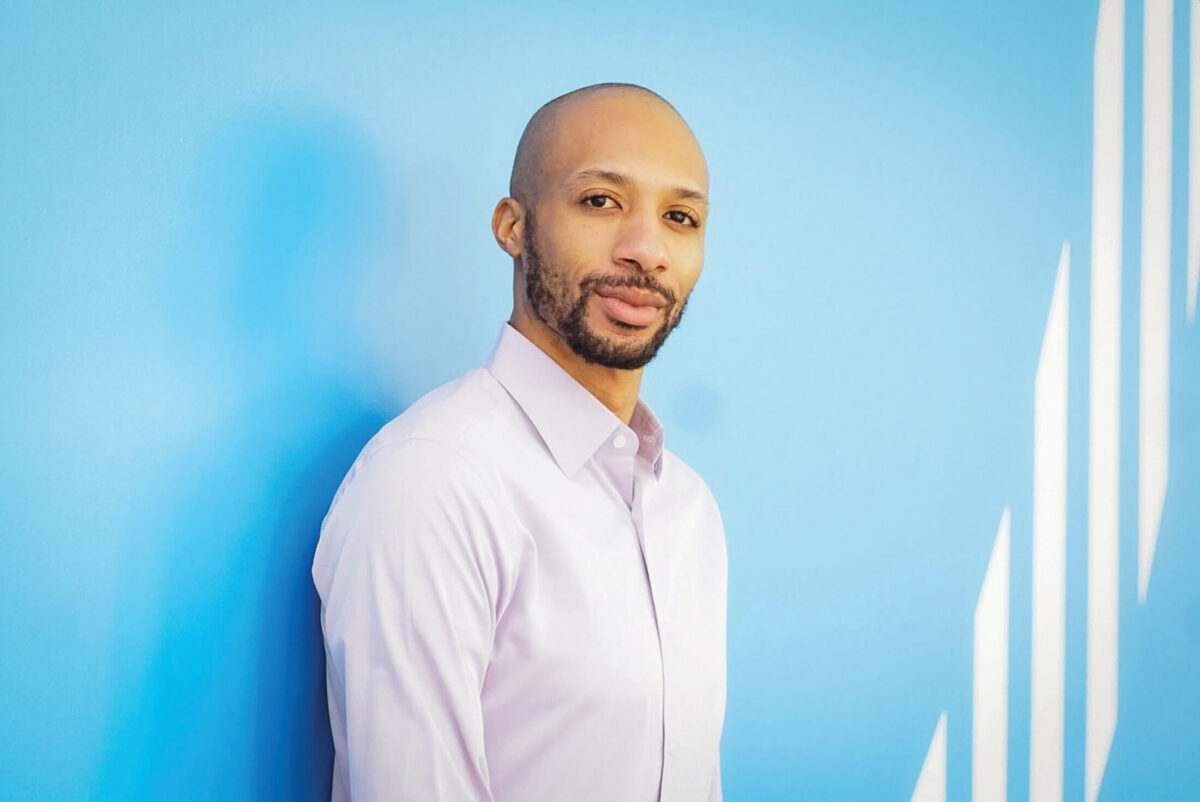
Brandon Hunter was in high school when he started his first job, repairing cellphones in a shopping mall kiosk in Pine Bluff, Arkansas. But the lessons he learned as a young person about the challenges of being a small-business owner from an underserved community continue to drive him as he helps budding entrepreneurs fine-tune their business strategies, secure funding, and overcome obstacles.
While some of Hunter’s mentees have been part of formal programs, including the Entrepreneurship Minor Pilot Mentor Program at McCombs, others are simply shop owners he meets as he is going about his day.
“A lot of it has been not so much from a structured perspective, but it’s been from the perspective of, ‘Hey, I stopped by your business. Great service, great food, great product. What are some of the challenges?’” he says.
Hunter got started as a mentor while attending the U.S. Military Academy at West Point, New York, where he earned a bachelor’s degree in business while helping high school students navigate the challenges of entering
college. He continued mentoring and sharing his business expertise, on and off, while living and working in New York City, and later while earning a master’s degree at McCombs. Now based in Dallas, Hunter still checks in
with current and former mentees even as he juggles a full-time job managing a warehouse for Xpedient Logistics and running his own tech startup, Roog Inc.
Hunter says the company, which focuses on connecting consumers with minority businesses, was inspired by the community of minority business owners in his hometown of Pine Bluff.
“They’re typically underserved. They’re underfunded,” he says. “Whether it’s Roog or something else, I will always work toward striving to make sure those communities get an opportunity to succeed.”
— Alice Popovici
Niloufar Molavi, BBA ’91, MPA ’91
Occupation: Global Energy Leader, PwC, Houston
Years as a Mentor: 25
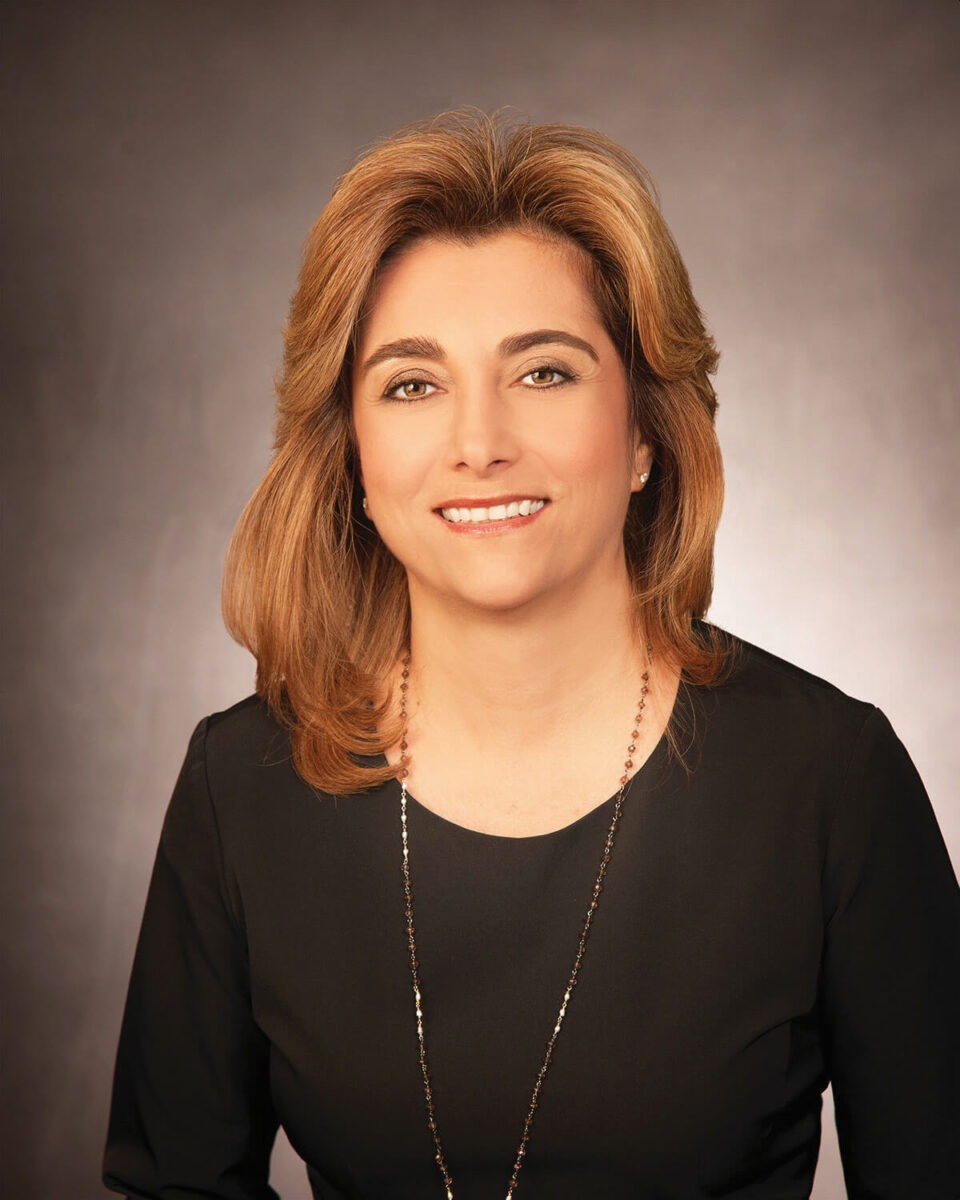
Looking back on her career, Niloufar Molavi says finding the right mentors was crucial to her success. She urges young people to cultivate a wide range of mentors — and benefit from as many perspectives as possible.
Some mentors could be college professors who offer guidance on the working world. Others may be colleagues who help you see an issue through a different lens. And some mentor-mentee relationships morph from mentorship to sponsorship, like Molavi’s relationship with a partner, Liz Yant, MPA ’79, who hired her from McCombs to work at PwC and guided her career for many years. Both women have been named to the McCombs Hall of Fame.
“She then started to open doors for me, extending her personal reputation within the firm and outside the firm with clients, creating opportunities,” Molavi says. “You pay that forward once you’ve had that experience.”
Molavi, who now serves as global energy leader and U.S. tax environmental, social, and governance (ESG) leader at PwC and is chair of
the McCombs Advisory Council, says working professionals need both mentors and sponsors. Though there is some overlap, sponsors go above and beyond proving career guidance; they actively help you advance, opening doors and often putting their own reputations on the line.
Molavi says she tends to mentor young women who are looking for career guidance and meets many of her mentees organically. Sometimes she identifies someone who could benefit from her help and simply reaches out. A former chief diversity officer at PwC, she has helped the firm not only hire but retain and promote more people from diverse backgrounds.
When she sees someone with much potential, Molavi does not hesitate to step into a sponsor role.
“It happens both formally and informally a lot of times,” she says. “You find the opportunity and you just do it.”
— Alice Popovici
Ed Tonkon, BBA ’78
President, Zebra Retail Solutions, Dallas
Years as a Mentor: More than 20
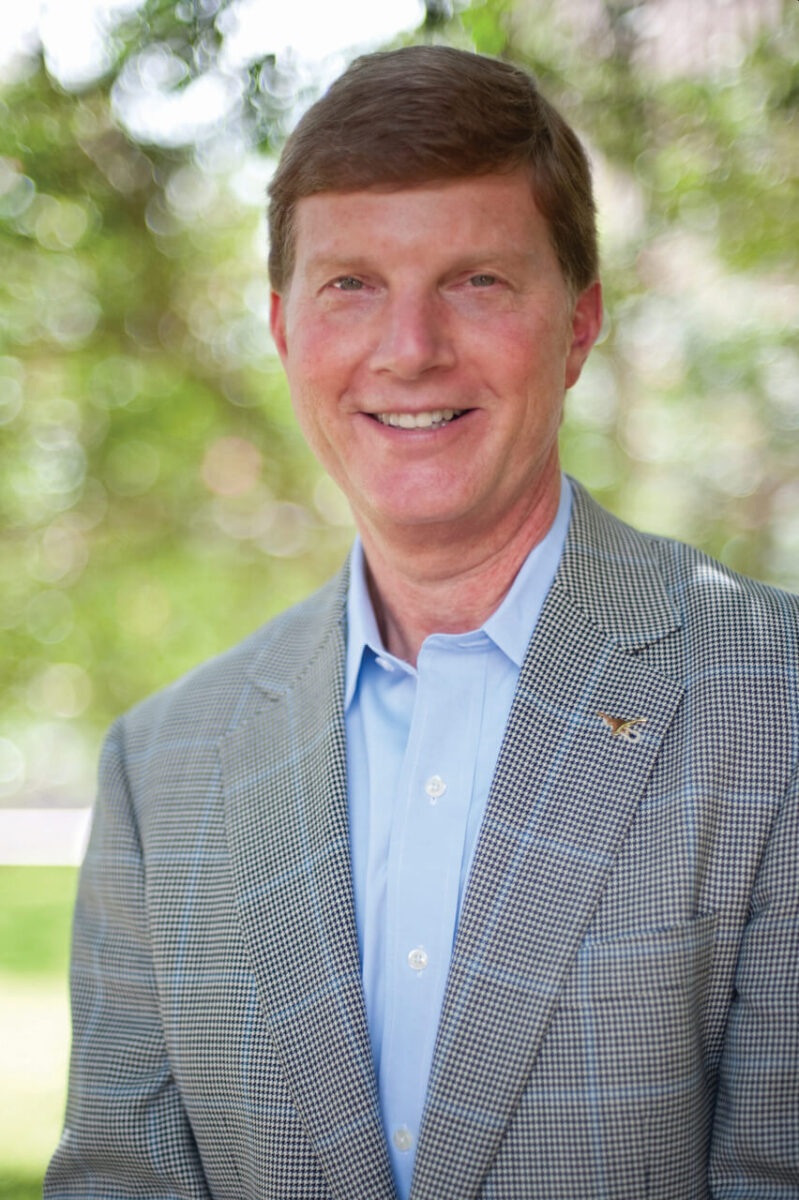
Ed Tonkon, president of Zebra Retail Solutions, a business unit of Zebra Technologies, counts the McCombs Executive Mentor program as the greatest mentoring project that he has been involved in. It grew out of a dinner he hosted for 13 McCombs student leaders in 2013, and the program is now in its 10th year. And that networking banquet has grown to about 15
tables — each holding 10 undergraduates — in the McCombs Hall of Honors. A distinguished UT alumnus is the host for each table.
In one of his family’s biggest legacies, Tonkon and his wife, Jamie, B.Ed. ’78, have created an endowment to support the dinner, which is organized by the BBAAdvisory Board. His commitment to mentorship also extends to
UT’s McCombs Master of Science in business analytics degree plan and his company’s initiative to mentor women.
For Tonkon, mentoring is about giving back to honor the many excellent advisers he has had throughout his career. He begins a new relationship with a mentee by establishing an understanding of their goals and by determining how best he can help, he says. “Often, I will recommend that my mentee speak with someone in my network that can help them.”
Whether he is the one mentoring or it’s someone in his network, he says it’s important to adopt a regular schedule for meeting with mentees — usually every two weeks — and stick to it.
Much of what he learned came from the experiences he had and still has with his mentors, he says. “All of my mentors knew me very well, some of which I had worked for or served together on a board. They could then provide honest and direct feedback that ultimately helped me in some of the most challenging career decisions I made.”
His newest challenge is guiding the participants in his company’s women in technology program. “As an ally to women, I am learning a great deal that I hope will help me be a more effective mentor to my group.”
— Mark Barron
John Adams, BBA ’66, J.D. ’69
Former Chairman and CEO of Chase Bank of Texas (Now JPMorgan Chase & Co.)
Years as a Mentor: More than 30
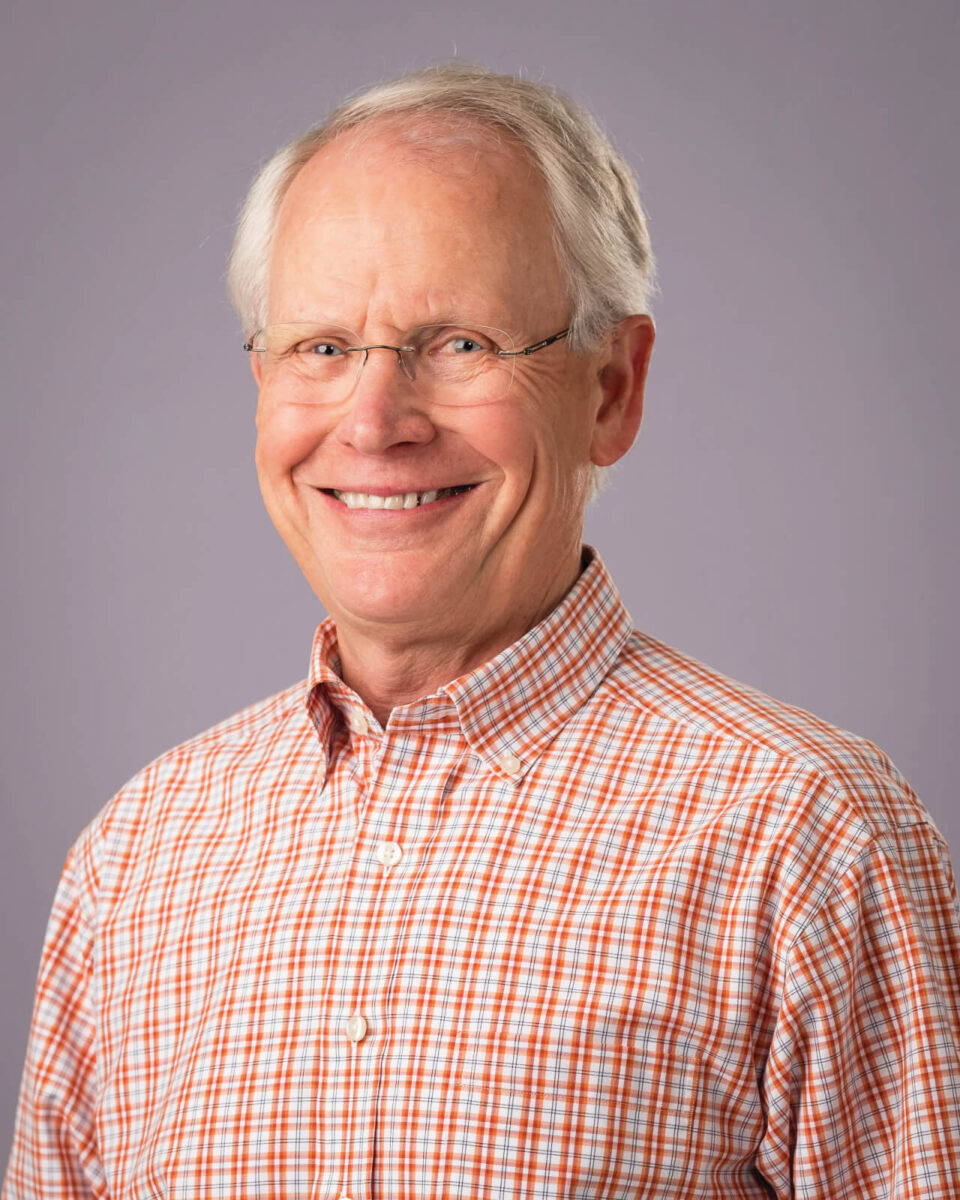
Whenever a young mentee addresses John Adams — former vice chairman of Trinity Industries, McCombs School of Business Hall of Fame inductee, a Distinguished Alumnus of UT Austin, and chairman of the McCombs Scholars Program — as “Mr. Adams,” he quickly dispenses with the formalities. “No, I’m John,” he says. Rather than identify as a mentor, he says he just loves and enjoys working with young people.
Despite his decades-long career in business, numerous professional affiliations, civic leadership, and scores of accolades, Adams explains that he prefers to connect with mentees in a personal, lighthearted way to put them at ease. Since Adams and his wife, Susie, B.S. ’67, endowed their first Forty Acres scholarship more than a decade ago, they have shepherded the careers of many McCombs alums.
In his relations with young people, he finds it helps to show that he is vulnerable and human. “They’ve got to become comfortable and really get to know you,” Adams says. “They also need to know you’ve had your share of struggles and mistakes you have made. When you become comfortable with someone, then you’re more willing to share and open up.”
One of the main aspects of effective mentorship is leading by example in your day-to-day life, he says.
“You’re not going to sacrifice telling the truth and doing the right thing even though there might be a shortcut,” Adams says. “They see that and then they go, ‘That is something I’ve got to stand by myself, because I deeply respect that.’”
Thinking back to his early career, Adams recalls a role model who had a significant impact on his life and career: McCombs Hall of Fame inductee John Duncan, BBA ’49, the late co-founder of Gulf & Western Industries and Gulf Consolidated Services. “If he asked me to do something, I knew it was for my good,” Adams says. “I maybe didn’t understand it, but I just did it.” Duncan guided him at key moments in his career and honed his eye for good timing. “He was a strong supporter and encouraged me along the way,” Adams explains.
Now, Adams focuses on paying it forward, though he is quick to add that mentoring goes both ways.
“I don’t know if I’m the mentor or the mentee,” he says. “I certainly get joy from it and joy from working with bright young people.”
— Alice Popovici
Courtney Webster, BBA ’21, M.S. ’22
Program Manager at Microsoft, Austin
Years as a Mentor: 1
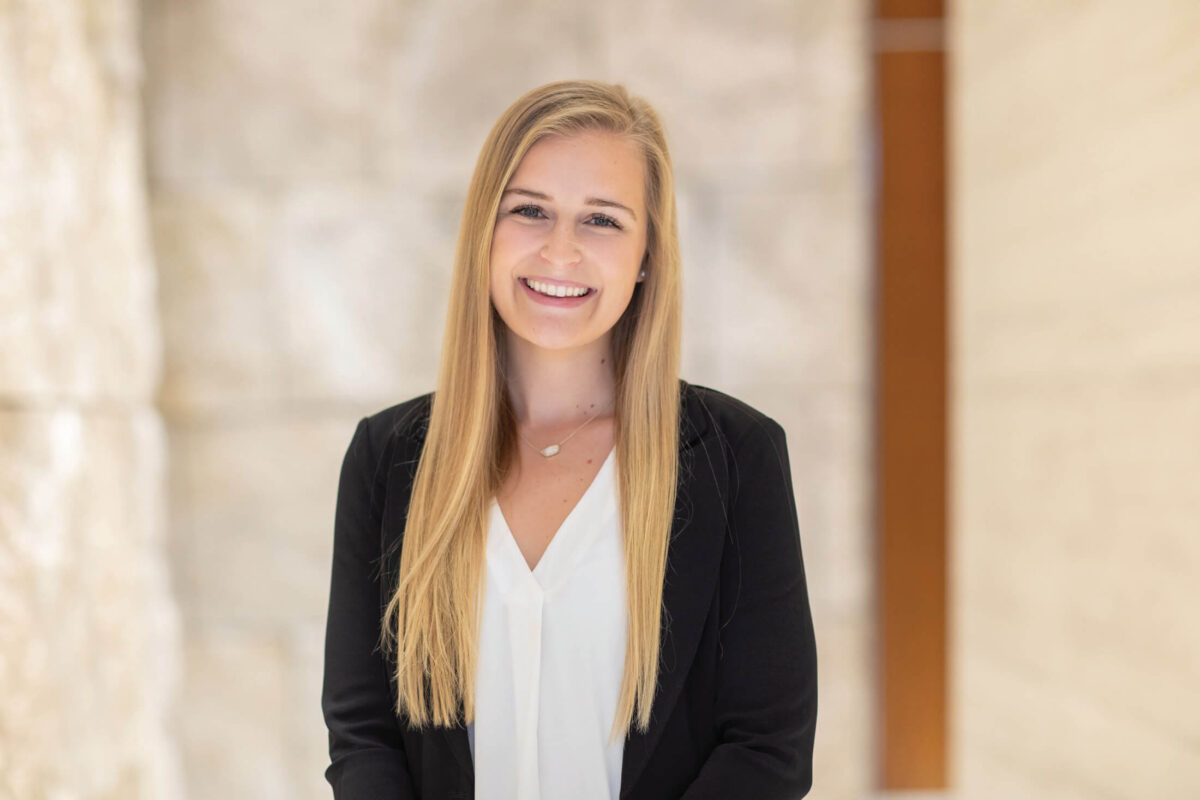
Before beginning the Master of Science in IT and Management (MSITM) program at McCombs in 2021, Courtney Webster says she used to think a mentor was someone older with years of career experience. But after she was matched with Dhrov Subramanian, BBA ’19, MSITM ’20, a recent McCombs graduate who had completed the MSITM program in 2020, she discovered that an informal mentor-mentee relationship — meeting once a week for candid conversations about curriculum options, career opportunities, and next steps — was exactly what she needed.
“He was able to act like a sounding board for anything that was happening,” Webster says of Subramanian. “It was mainly just like a good friend that was just a few steps ahead of me in their journey.”
When Webster’s mentor learned that she was interested in pursuing a job in product management, he was able to break down the process into a few actionable steps, as well as coach her through her concerns, she remembers. As a result, she was not only able to successfully finish her year at McCombs and land a job as a product manager at Microsoft, she has become a skilled problem solver in her own right.
In her current role, Webster works with Microsoft’s VS Code team, where she spends much time doing customer research, helping troubleshoot problems, and bringing program bugs to the engineering team’s attention.
Webster now gladly pays it forward, sharing what she has learned with McCombs students who reach out to her. And she has some advice for prospective mentees: Seek out mentors, ask for help, and keep in mind that the mentor-mentee relationship does not need to be formal or intimidating.
“Just identifying people that are two, three years ahead of you that have been through similar situations — they have so much advice and wisdom that they can share,” she says.
— Alice Popovici
Lyndsey Bagby, BBA ’24
Current McCombs Student
Years as a Mentor: 1
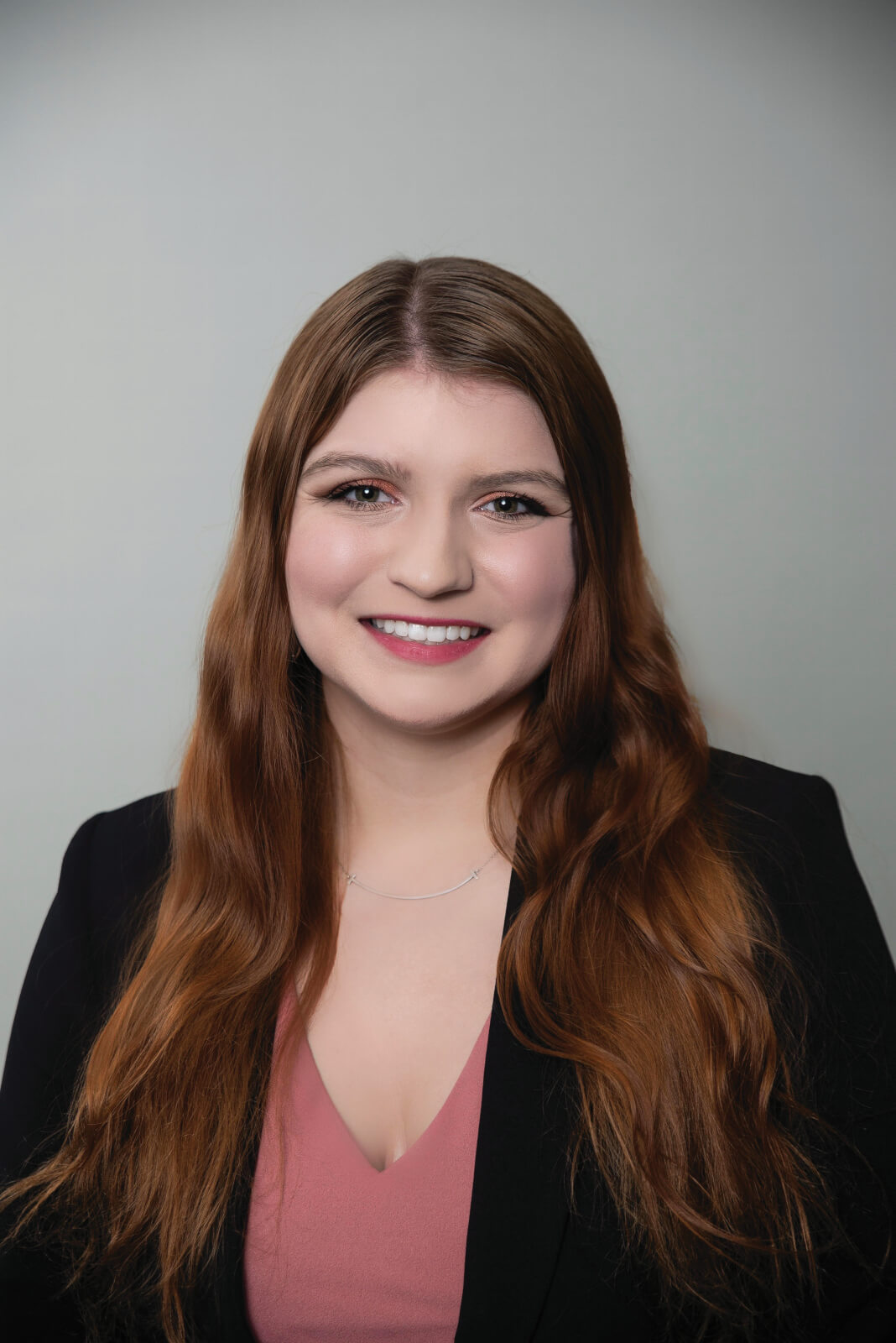
Marketing junior Lyndsey Bagby likes to bring a touch of family to the younger students she mentors. She is the oldest of four children and draws on her experiences with her siblings to reach out to those students.
“It’s important to me that my mentees felt they had someone they could rely on at UT and that they viewed me more as an older sibling they could confide in,” she says.
Bagby, who was a mentee in the McCombs Success Scholars program, has been a peer mentor for a year. For her first group meeting, she asked her mentees to come to her apartment so they could bake cupcakes and play a video game.
“I felt that by inviting them over to my apartment and letting them meet my cat and be in my space made it easier for them to feel like they know me.”
One of her secrets to guiding her mentees is opening up to them so they can develop more personal relationships. “I feel it’s important to let them know of your failures and successes, as they’re more likely to share theirs with you and won’t feel judged. I also enjoy celebrating their successes, so I was sure to tell them how proud I was of them.”
Some mentees were shy and some were outgoing, she says, so she had to alter her style for each during their one-on-one meetings. She would take notes and follow up later. “I made sure to learn about their families at home as well as how their academics were going and their personal well-being.”
Bagby studied in Scotland during the fall but stayed in touch with her mentees. “I can’t wait to meet up with them when I’m back in Texas after my semester abroad.”
She will have much to share.
— Mark Barron
Michael Clement
Professor of Accounting
Years as a Mentor: More than 30

When he was younger, UT accounting professor Michael Clement says, he realized that the mentors and role models in his life were a critical factor in his success. Those mentors and role models were the only difference between his accomplishments and the struggles his less-fortunate friends endured, he says. “My parents were great role models, and they raised me to believe that my blessings were a responsibility for me to be a blessing
to others.”
To live up to that standard, Clement helped start The PhD Project, which seeks to increase the diversity of doctoral programs and academia. At UT, he reached out to the athletics department and offered to mentor student-athletes from underrepresented groups, regardless of their major. Eventually, he was picked to serve as the university’s faculty representative
to the National Collegiate Athletic Association.
Clement, who is also the Clark W. Thompson Chair in Accounting at Texas McCombs, says there is nothing unusual about his approach. “The main thing I do is listen and take a real interest in the mentee as a person. I try to understand the mentee and his or her perspective.”
He tries to help his mentees become the best versions of themselves, he says. “It is not my job to tell them who to be. My job is to help them figure out who they want to be, to take a real interest in them, to help them
reach their full potential according to who they want to be.”
His most rewarding mentoring experience, he says, involves a UT basketball player. “We established a relationship when he was a student
here, and he left UT to play professional basketball before he graduated. We maintained our relationship after he left UT, and at the age of 38, he came back to finish his degree.”
— Mark Barron
Time to Mentor
Connect with McCombs to find a way to mentor that’s right for you.
About this Post
Share:
